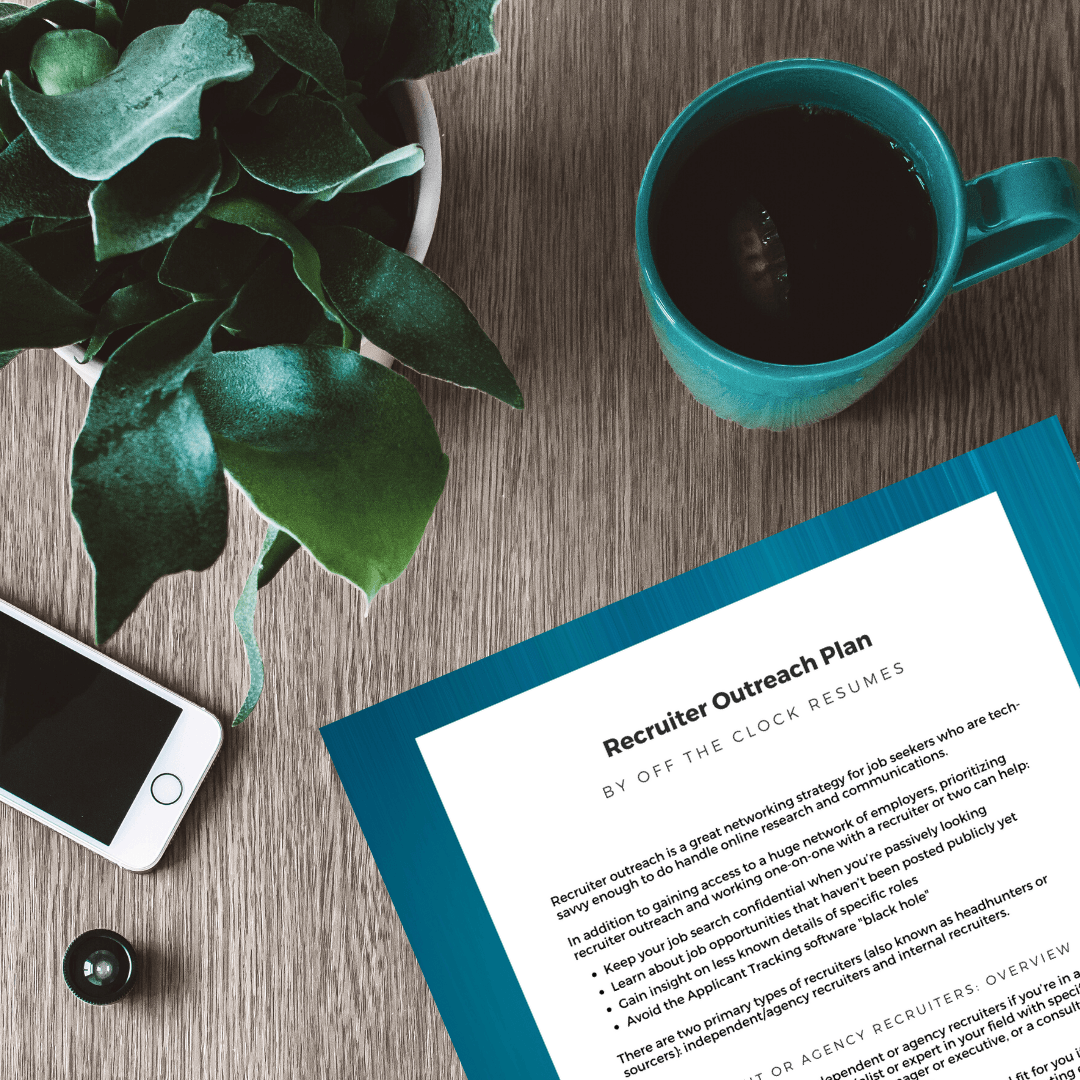
4 Ways To Follow-up After A Networking Event
Frustrated with the online application process?
I don’t blame you. Lengthy applications with repetitive questions, resume uploads that don’t auto-populate application fields correctly, and getting a “not interested” response or getting no response at all after all that time and effort is enough to discourage anyone barely keeping their head above water in a job search.
Those of us in the career services space typically recommend networking instead of relying on online job applications, but the words “networking” and “following up” tend to come with a negative stigma. Networking feels time-consuming and uncomfortable. Following up feels desperate and annoying. But the combination of networking and following up is where you’ll see the results of your job search efforts.
What if you could start thinking of networking and following up as simply starting and continuing a conversation? What if networking and following up was simply creating and developing professional friendships that were mutually beneficial with give-and-take (like most friendships)?
Here are the four ways you can follow up after a networking event (in-person or virtual) and develop mutually beneficial professional friendships with others in your field.

This blog contains affiliate links, meaning I may receive a small commission (at no cost to you) if you subscribe or buy something through the links I share. I only share links to products or services that I use myself or absolutely love!
Follow-up by LinkedIn
One of the most common networking mistakes is to fail to collect business cards or contact information from the people you meet. LinkedIn can save the day as long as you know a few basic deals like their name and place of employment thanks to LinkedIn’s advanced search features.
Not sure where to find networking events to attend? Check out the Job Club & Local Networking Plan…
It’s a best practice to send a connection request via LinkedIn as soon as possible (even at the event if you can!), and “Add a note” or “Personalize invite” from the More button on their profile to give context to your connection request. Mention meeting at the networking event or something memorable from your conversation to help him or her connect the dots.
Encourage a response by asking a question about who else they met at the event or a non-work-related interest they mentioned. Magic happens in Messages. Continue your conversation and check in occasionally to develop a mutually beneficial professional friendship. You can also share updates about your job search, but don’t let that be the primary focus of your continued conversations.
LinkedIn is also a great platform for passive follow-up. This looks like endorsing any skills you’ve witnessed on his or her profile, liking and commenting on his or her posts in the feed, and tagging him or her on articles they’d be interested in. Take your give-and-take to the next level, and refer relevant job leads if they come up and you know that he or she is on the lookout for something different.
Follow-up by Email
If your new contact isn’t active on LinkedIn, email is the next best platform for quick and easy follow-up. You can use the Google Chrome extension Hunter.io or a similar tool to track down an email address from his or her employer’s website. Keep in mind that a business email address may have more strict SPAM filters and are monitored closely by employers.
The key to an effective follow-up email is to be short and sweet in mentioning the networking event or something memorable from your conversation and encouraging a response by asking a question that keeps the conversation going. This looks like inviting him or her to lunch or coffee to further discuss each others’ career goals, ask about projects he or she is working on, and offer to help when possible.
Find ways to be a giver, not just a taker, when trying to develop a professional friendship.
Follow-up by Zoom/Phone Call
You can also follow up after a networking event by taking the conversation offline, so to speak, with a Zoom or phone call. This is the best strategy for coordinating an informational interview or initiating a mentoring relationship. Don’t anticipate long, meaningful discussions over the phone unless you first take the time to foster a closer professional friendship. For example, I cultivated a professional friendship with a colleague over the course of 2 years before we started planning Zoom wine nights every few months during the pandemic.
If you want to naturally step into mentorship, start by offering to meet up for coffee or lunch if he or she is new to your field. Take an interest in their struggles, answer their questions, and give helpful advice when asked.
If that sounds more like you, you can also call to request a meeting with an industry leader to ask about his or her career journey, the role he or she holds, the company he or she works for, and the advice he or she would give someone looking to advance in your position.
Not sure how or when? This step-by-step Follow-up Plan includes a digital planner and templates to help you track and follow up consistently on job applications, networking efforts, and interviews
Follow-up by Handwritten Note
Handwritten notes are also great gestures when following up after a networking event. Manage your expectations, though. A handwritten note is less likely to get a response than a LinkedIn message, email, or phone call so make it easy to respond by including your phone number or email address in the note.
Consider sending a handwritten note to show gratitude if he or she has been especially helpful to you. A handwritten note is appropriate when thanking him or her for advice given that moved you forward in some way, a job lead even if you didn’t get a job offer, or an introduction that may lead to a career-boosting opportunity that you shared an interest in.
Conclusion
When you look at following up as continuing a conversation started at a networking event, it feels less desperate and annoying. Your goal for networking should be to create and develop professional friendships that, with give-and-take, are mutually beneficial. Your network can become a support system that cheers you on as you grow in your career and refers you to “great fit” opportunities that you may not have heard of otherwise. Following up passively using LinkedIn and frequently using various methods to continue a conversation and check in on your new professional friends is all it takes.
Related Articles
-

Career Transitions: Navigating Your Path to Success in Healthcare and Beyond
Guest blogger Sadie Smith shares how to leverage your existing skills and experience while pursuing new career opportunities in healthcare and other industries.
-
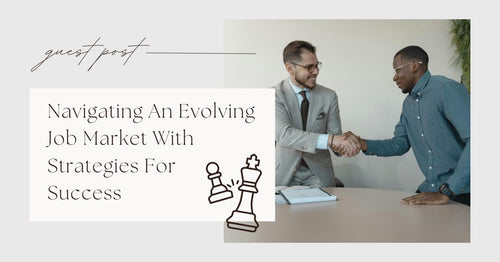
Navigating An Evolving Job Market With Strategies For Success
To thrive in a dynamic job market, you need to continuously adapt your job search strategies. Stay informed and flexible to position yourself for success.
-
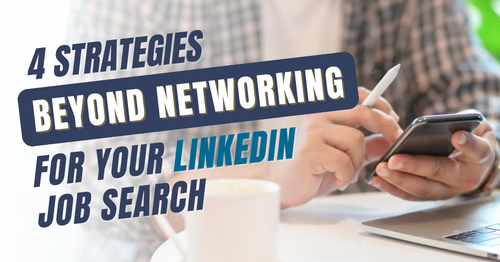
4 Strategies Beyond Networking For Your LinkedIn Job Search
Supercharge your LinkedIn job search and stand out to recruiters and employers alike with strategies beyond networking.
-
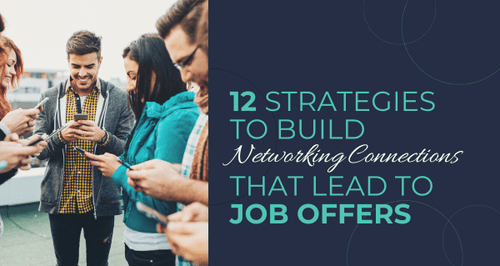
12 Strategies To Build Networking Connections That Lead To Job Offers
Breaking down the value of networking and the top strategies to harness the power of making strategic connections to land the job of your dreams.
-
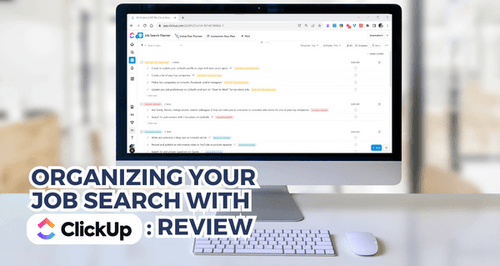
Organizing Your Job Search With ClickUp: Review
This review shares how ClickUp, a free desktop and mobile app for business AND personal use, can be used for organizing your job search and holding you accountable toward achieving your career goals.
-

5 Ways To Stand Out At A Career Fair
Learn how to stand out at a career fair (virtual or in-person!) to move you forward in your job search, especially if you're changing careers or have an unconventional work history.
-

Negotiating A Competitive Salary
Guest blogger Rohan Singh shares strategies for negotiating a fair salary that reflects your worth and fulfills your goals.
-

The Ultimate Temping Guide for Beginners
Guest blogger Auria Heanley with Oriel Partners shares insight into what a temp job is and what to expect in order to make the most of a new job opportunity.
-

How To Get More Informational Interviews
These tips outline how to get more informational interviews during your job search and expand your options by making this networking approach your primary strategy to find a job.
-

Know Your Worth and Add Tax: How To Effectively Negotiate Your Salary
Guest blogger Jeffrey Cassells with Shegerian Law advises that it's time to learn how to negotiate strategically and not settle for being underpaid, whether you're at your first or fifth job.
